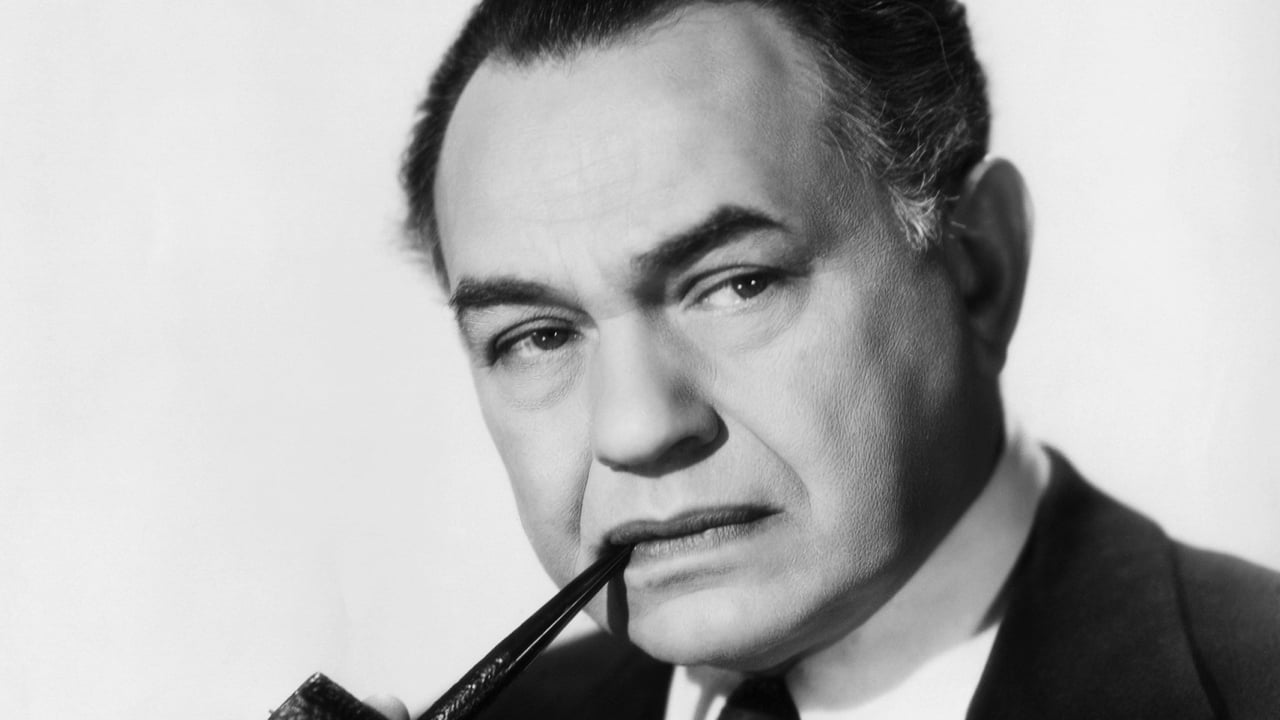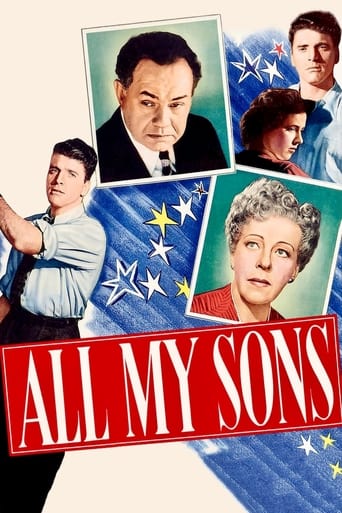

The story is wonderful. It is clean of the usual flurry of characters going in and out of the screen. There is much dialog and less time wasted on introspection and private thoughts you have no idea if they are meant to be heard by the audience of by somebody else. The actor play is quite good and the characters are drawn well with a sure hand, mostly to the credit of the play author.On the technical side I loved how the screen was also clear of most useless objects. For example the opening scene that follows into the garage. You see there are not one but two cars. The cars are big. They seem new because they are clean. And the garage is large enough for the two characters to move around with the two cars parked inside. So they are well to do. Also, later on, you realize there are two cars because only *men* drive cars. That is made clear by the remarks young women receive. So this is quite a patriarchal environment. I get to see nothing else in the garage. Not the mess of a storage shed. No other accessories.What breaks the well executed film is the end which might as well be shot afterward without director or script just to give the story an optimist look.Contact me with Questions, Comments or Suggestions ryitfork @ bitmail.ch
... View MoreThis is a great movie for anyone who likes well-acted, tightly-written suspense and who can tolerate the absence of such tired action-movie clichés as exploding helicopters and pithy catchphrases. Edward G. Robinson does a masterful job as Joe Keller, an aircraft manufacturer who shirks the responsibility for providing faulty equipment to the Army Air Force (as it was known then) and allows his partner to go to jail. Solid supporting performances by Burt Lancaster, Howard Duff, and Mady Christians make All My Sons an even more rewarding movie. What I really loved about it is how the screenplay contrasts not just guilt and innocence but also knowledge and belief, loyalty to family and loyalty to the truth, and grief and guilt. The plot is complex and fulfilling; all characters are well-rounded. The acting is uniformly excellent and you are made to believe in the characters and their plights.I have two hesitations about recommending this movie unreservedly. One is that anyone who has seen the play, and especially any fan of Arthur Miller, might find the movie disappointing. Screenwriter Chester Erskine changed quite a bit, including removing some characters and reducing the number of competing plot lines. The script may be weaker than Miller's play, but it's more suitable for the big screen.The other reservation I have is that the underlying premise is actually quite unrealistic. In real life there would have been no investigation in the first place, and certainly no criminal charges. Training aircraft crashed with such depressing regularity that investigation was rare even in the most suspicious cases - there just wasn't the money, time, or interest on the part of the brass. Problems in combat situations would be investigated, but most training accidents were assumed to be pilot error even when they patently weren't. This error won't bother most people, of course, and shouldn't; but if you are a stickler for accuracy it might affect your enjoyment of the film.
... View MoreA standard 1940's group of ensemble players, coupled with strength of an Arthur Miller project. All of the cast principles and minor players as well were at the top of their forms when they stood before the cameras. None were noted as powerful stage actors in their own right. Yet when they appeared in this film, they succeeded in doing what I think a film of a major stage work should do. Carry the viewer into the stage (not film) theater, and give him/her the unique experience of a Broadway or Off-Broadway theater seat.The production style and direction, (for reasons of cost and utility) let the words of Miller's play take center stage. The Art and Set direction, in beautiful black-and-white, are spare, firm, and commanding. They command our attention. Miller is big on attention to the issues his characters are grappling with and their impact on the great issues of our (and all) time.As Miller repeats in Death of a Salesman, there are layers upon layers of meaning and understanding between his characters and the issues they confront both internally and externally. The two business partners have had a long, intimate, family relationship (like Cain and Able). So close a relationship, that his son could have married his partner's daughter. And she of course, is the only one who has always known (from that son) the truth about the death of the son. And the truth(s) about the father.Miller shows us that the father's Horatio Alger lies are so much at the foundation of who we are individually and collectively as Americans; the they can almost completely wash out what individuals and a community should think about its leading citizens. It is an interesting plot twist that as Miller's script points out, it is the low class birth and poverty of the father embeds him into the fabric of the community.That the film faithfully carried Miller's message of contempt and loathing not only for the worship of that false god(capitalism), but also for the whole Horatio Alger hero myth (that both American liberals and conservatives embrace) is quite daring. Even for a film world that had not yet descended into the long night of the "Black-List".
... View MoreMost American theater lovers think that greatness descended upon Arthur Miller in 1947 with his great play THE DEATH OF A SALESMAN. It certainly is the play that people remember above all his work, even such later classics as THE CRUCIBLE and A VIEW FROM THE BRIDGE. But as a matter of fact, just like THE GLASS MENAGERIE preceded Tennessee Williams' A STREETCAR NAMED DESIRE, ALL MY SONS preceded THE DEATH OF A SALESMAN.If Williams found a tragic poetry in the soul of his fallen aristocratic characters - his Amanda Wingfields and Blanche Dubois - Miller found a mine of power in the failures of the American cult of business success. In SALESMAN it is Willy Loman's gradual realization that a lifetime of hard struggle and strife serving his company did not result in his being shown any respect when he can no longer bring in any large business. In ALL MY SONS, Joe Keller (Edward G. Robinson) is not a small peg in the economy like Willy Loman. He is the owner of a factory - on his way to being a millionaire which (in 1948) is the proof of success in America. But while Willy Loman has a dirty secret that cost him his son's respect for him as a father, Keller has a dirty secret that makes him a criminal.The film/play takes place in 1945 - 46. Keller's oldest son has died in World War II, in an military aviation crash. His younger son Chris (Burt Lancaster) has returned too from military service upset - he is aware that something is wrong about the death of his brother, but he is not sure what. He is also aware that his father has a secretive side - one that he is sensitive about. It appears to be connected to the wartime trial of Keller's partner Herbert Deever (Frank Conroy). It seems that Keller and Deever's plant got a big government contract that required the delivery of airplane motors at a particular date. It was a very lucrative contract: in fact, it built their company. But there was a defect in the motors - which did not prevent Deever from completing the delivery of the defective motors. As a result, twelve planes crashed in the South Pacific, killing their pilots and crews. Deever ended up going to prison, but the critical decision was made without Joe Keller being present (he was ill that day) and so Keller did not go to prison.Somehow, despite Chris's perplexity about his brother's death in the war, the Kellers would seem not to have any problems. Joe is an apparently successful manufacturer and seems well liked. His wife Kate (Mady Christians) is always ready to smooth over any little flurries of difficulties that may pop up. But Chris comes home with his girl friend Ann (Louise Horton). This is upsetting to Joe and Kate, though they try to put their best face on it: Ann is the daughter of jailbird Herb Deever. And sometimes tagging along is angry, troubled George Deever (Howard Duff), who has occasionally visited his dad - and has heard the story of the defective motors from a different perspective. And that perspective raises issues about "good old" Joe Keller.Up to 1945 the subject of government contracts and corrupt cost cutting rarely popped up on stage or screen. But during World War II it became a big issue because of the huge government contracts that Washington set up for the war effort. In fact, the U.S. Senator in charge of investigating waste and corruption in these contracts made a really big name for himself in the public eye. He was a Senator from Missouri named Harry S. Truman, and by 1944 he had become such a prominent figure that F.D.R. insisted he be his running mate for the Democratic National Ticket. They won, and within a year Truman had a higher office than Vice President.But the subject never really came up before in film. There was, oddly enough, a film in the 1930s about the Spanish American War "tainted meat" scandal that damaged the career of Secretary of War Russell Alger in McKinley's Administration. This was I LOVED A WOMAN. The meat packer profiteer involved in that film was played by Edward G. Robinson of all people. But that scandal was the only war profiteering one that came to the screen. So when Miller did this film it was, if you will, "virgin territory".Miller, of course, turned the issue into a morality situation - as Joe Keller comes face to face to his sin against his partner, his country, the war effort, and his own sons. And he does, in the end, learn that the material gain was too costly - as he realizes, the dead pilots were all his sons.
... View More